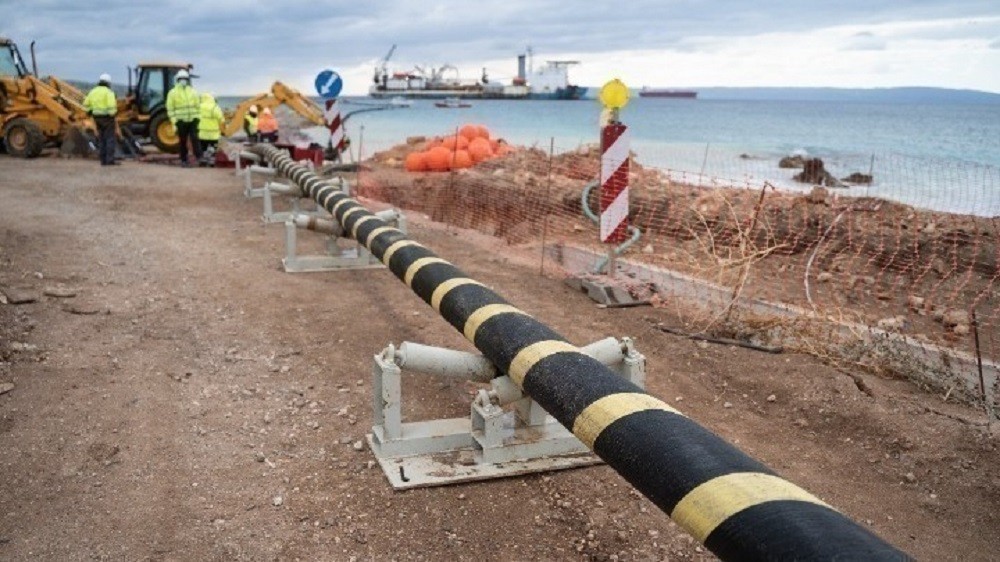
#Tags:
CyprusAnkaraUNSGCyprus protests to UNSG: “Agreement” between Ankara and Turkish Cypriot regime on electricity
The government of Cyprus has denounced, in a letter to the UN Secretary General Ban Ki-moon, the illegal `agreement` between Turkey and the self-styled regime in the northern Turkish occupied areas of Cyprus, regarding the transfer of electricity to the occupied areas.
The letter, which circulated on Monday as an official document of the UN General Assembly and the UN Security Council, is dated 10th November 2016 and signed by the Chargé d’affaires a.i. of the Permanent Mission of Cyprus to the United Nations Menelaos Menelaou. The letter is addressed to the UN Secretary-General.
“Upon instructions from my Government, I regret to bring to your attention the signing, on 10 October 2016, of a so-called framework “agreement” on cooperation regarding energy matters, between Turkey and its secessionist entity in the occupied part of Cyprus. This framework “agreement” provides for the establishment of an electricity connection between Turkey and the occupied areas of Cyprus through submarine cables and also envisages collaboration on a range of other issues, such as oil, natural gas and renewable energy”, the letter states.
It adds that while such an “agreement” remains legally invalid under international law, it constitutes yet another deliberate act of provocation by Turkey aimed at further consolidating its effective political and economic control over the occupied part of Cyprus, deepening the existing division and creating new faits accomplis on the ground.
It is recalled that in a letter dated 8 March 2016 addressed to the UNSG the government of Cyprus had expressed “grave concern regarding the water connection between Turkey and the occupied part of Cyprus, which constitutes yet another illegal act in the context of Turkey’s systematic policy of promoting the political and economic integration of the occupied part of Cyprus”.
“Beyond its grave political consequences, the serious legal and technical repercussions should also be highlighted. Turkey stands in violation of fundamental principles of international humanitarian law. As the occupying Power, Turkey is in breach of its obligations under article 43 of the annex to the Fourth Hague Convention of 1907, of the equivalent article of the Hague Convention of 1899 and of article 64 of the Geneva Convention relative to the Protection of Civilian Persons in Time of War to respect the laws of the Republic of Cyprus. Turkey is fully bound, under both conventional and customary international law, to fulfil the aforementioned obligations”.
Furthermore, the letter to the UNSG underlines that “laying of submarine cables in the territorial sea, continental shelf and exclusive economic zone of Cyprus will constitute a further blatant violation of the sovereignty, sovereign rights and jurisdiction of the Republic of Cyprus. The signing of any such agreement lies outside the ambit of international law, including the United Nations Convention on the Law of the Sea and the Cyprus-related United Nations resolutions”.
It is recalled that “the signing of the aforementioned “agreement” occurred during an extremely critical phase of the negotiating process for the settlement of the Cyprus problem. While Turkey alleges that it supports the current negotiating process and wishes a speedy settlement of the Cyprus problem, it undertakes actions demonstrating its mistrust of the process and a deliberate effort to interfere with its outcome by creating new conditions to its own benefit”.
In the letter, it is noted that the Government of the Republic of Cyprus has always showed its readiness to respond to requests for electricity supply to the population residing in the occupied part of Cyprus during occasions of shortage due to mechanical failures or high demand.
Furthermore, “it welcomed the decision to proceed with the synchronization of the electricity grids in Cyprus as a confidence-building measure. It can thus be safely assumed that this project’s real aim is not to respond to any genuine need but, on the contrary, to cement the illegal division of the island and to strengthen the secessionist entity’s economic and political subordination to Turkey”.
It is stressed in the letter that “at this stage, all parties involved, notably Turkey, should redouble their efforts towards the solution of the Cyprus problem and the reunification of Cyprus, thus creating the conditions for a holistic use of infrastructure for island-wide development and prosperity”.
“Any actions that are not in compliance with this imperative need and international law not only complicate the negotiating process, but also undermine the much-needed trust between the two communities and the efforts to maintain a conducive climate at this very critical juncture”.
It concludes by noting that “therefore, my Government kindly requests your assistance in conveying a strong message to Ankara to the effect that the Republic of Turkey must comply with international law, respect the sovereignty of the Republic of Cyprus and refrain from creating new faits accomplis, which jeopardize the peace process and deepen the division of the island”.
Cyprus has been divided since 1974, when Turkish troops invaded and occupied 37% of its territory. Anastasiades and Akinci have been engaged in UN-led talks since May last year, with a view to reunite the island under a federal roof.
CNA – USA/United Nations/New York 22/11/2016 00:18

